Choir Participation and Its Amazing Benefits for You


Choir participation offers a transformative experience that goes far beyond simply singing together. When you join a choir, you tap into a unique blend of artistic expression, social connection, and health improvement that can enhance various aspects of your life. Whether you are a seasoned musician or a newcomer to vocal ensembles, the act of singing in unison creates bonds that transcend differences, fosters creativity, and improves both mental and physical well-being. As you explore these benefits, you’ll discover that choir involvement is not just about the music—it’s a holistic practice that nurtures cognitive function, emotional balance, physical health, and personal growth.
Many choirs operate on the belief that music holds intrinsic therapeutic value. Research has shown that engaging in choral singing can lead to better mood, improved memory, and stronger social networks, which in turn have positive effects on overall health. Choirs also offer a structured environment that can promote discipline, accountability, and the development of important performance skills. In addition, many choirs become safe spaces where members feel a sense of pride, belonging, and meaningful accomplishment, all of which contribute to a higher quality of life and life satisfaction.
Joining a choir might be the key you need to boost your confidence, manage stress effectively, and even improve aspects of your cognitive performance over time. Let this article guide you through a detailed exploration of the benefits of choir participation across social, mental, emotional, physical, and developmental dimensions. Discover the profound impact that collective singing can have on your life, and be inspired to take the next step in your musical journey.
Key Takeaways
- Choir participation builds strong community bonds and reduces feelings of isolation.
- Singing can enhance cognitive functions such as memory, concentration, and brain plasticity.
- Group singing substantially improves emotional health, helping to relieve stress and boost mood.
- Regular choir involvement promotes physical health by improving breathing, posture, and cardiovascular well-being.
- Engaging in choir activities supports lifelong skill development and age-specific benefits.
Unlocking Social Advantages Through Choir Participation Benefits

When you join a choir, the first and most apparent benefit is the powerful social connection formed through collective musical expression. Singing in a group establishes a shared purpose and facilitates a deep sense of camaraderie among members. Being part of a community choir enables you to forge strong bonds not only with fellow musicians but also with others who share your passion for music. This sense of belonging can drastically reduce feelings of social isolation, which has been linked to numerous negative health outcomes.
Forge Strong Community Bonds by Singing Together

Group singing inherently demands a high level of cooperation and coordination, leading to enhanced social integration. As you rehearse harmonies and work towards synchronized performances, you naturally develop trust and mutual reliance with your peers. This collaborative environment encourages you to lean on one another, share experiences, and celebrate the collective achievement of producing beautiful music. Over time, these relationships can evolve into lasting friendships, offering a robust support network outside the realm of music. Evidence from community music programs suggests that participants experience improved social skills and greater empathy due to the collective nature of choir practice.
Develop Collaborative Skills Within a Choral Ensemble

Working within a choir requires active listening, compromise, and mutual respect—qualities that are applicable far beyond the rehearsal room. In the process of blending individual voices to create a harmonious whole, you learn how to align your goals with those of the group. This collaborative dynamic can enhance your teamwork abilities in professional and personal settings, ultimately leading to enhanced leadership skills and better interpersonal communication. Such skills are essential in today’s interconnected society, where collaboration and emotional intelligence are highly valued in virtually every field.
Overcome Isolation With Group Musical Engagement

Beyond merely establishing a social foothold, choir participation actively combats feelings of loneliness and isolation. Singing in unison elevates the release of endorphins and other mood-enhancing chemicals, which can mitigate stress and foster a sense of well-being. In many studies, individuals who engage in group singing report lower levels of anxiety and depression compared to those who do not participate in regular social musical activities. This effect is particularly important in modern society, where digital interactions often replace face-to-face communications, leaving many with a sense of disconnectedness.
Cultivate Meaningful Connections With Fellow Members

As you participate in a choir, every rehearsal session and performance becomes an opportunity to deepen your connections with others. The shared passion for music creates a fertile ground for meaningful conversations and emotional exchanges that extend beyond the musical domain. These connections can offer not only emotional support but also constructive feedback and encouragement for your musical endeavors. Over time, these interpersonal relationships contribute significantly to overall life satisfaction, reducing stress and fostering a positive outlook on life.
Realizing Cognitive Gains the Mental Benefits of Choir Participation

Engaging in regular choir practice stimulates your brain in multiple ways. Singing requires you to remember lyrics and musical arrangements, which in turn boosts your cognitive functions such as memory and concentration. The neural activities involved in vocalization activate both hemispheres of the brain, enhancing overall cognitive performance. Moreover, learning harmonies and rhythms challenges your brain to process complex auditory information, subsequently promoting brain plasticity and cognitive resilience.
Enhance Memory and Concentration With Musical Training

When you practice with a choir, your brain is constantly engaged in the process of memorizing diverse musical pieces. This active mental exercise improves both short-term and long-term memory, as evidenced by various research findings on music training. Concentration is also heightened since you must pay close attention to details of timing, pitch, and dynamics in group singing. As a result, many choir participants report better academic performance and enhanced work productivity, indicating that the benefits of choir involvement extend into various aspects of daily life.
Activate Your Brain Through Learning Harmonies and Rhythms

Learning and performing complex musical arrangements requires an intricate understanding of harmonies and rhythms, which activates numerous neural pathways in the brain. This process not only reinforces auditory perception but also improves spatial-temporal processing skills. The brain’s engagement during these activities is comparable to solving a challenging puzzle; it requires focus, problem-solving skills, and creative thinking. Such mental workouts are essential for maintaining cognitive sharpness, especially as you age, and have been linked to reduced risks of dementia and other cognitive impairments.
Promote Brain Plasticity by Engaging in Vocal Music

Exposure to new musical patterns and learning arrangements continuously reconfigures your neural circuitry—a process known as neuroplasticity. This continuous challenge keeps your brain agile and better able to adapt to new information or skills. The benefits of increased brain plasticity are particularly evident in older adults, who often face cognitive decline. Regular choir participation can act as a natural intervention for preserving cognitive functions, improving overall mental agility, and even enhancing problem-solving capabilities in various day-to-day tasks.
Keep Your Mind Sharp Through Lifelong Choral Singing
Staying active in a choir throughout your life not only preserves but can also improve cognitive function over time. Lifelong learning, particularly in the arts, contributes to a richer, more resilient mental state. Choir participation demands active engagement, continuous learning, and the ability to adapt—all of which are crucial for maintaining mental clarity. As you age, being consistently involved in choral music can delay the onset of cognitive decline and enhance your ability to perform complex mental tasks, contributing to sustained independence and a high quality of life.
Emotional Uplift Uncovering the Joyful Benefits of Choir Participation
The emotional benefits of choir participation are perhaps some of the most immediately noticeable. Singing engages the limbic system, the part of the brain responsible for processing emotions, leading to significant mood enhancements. The act of singing releases a host of beneficial chemicals, including endorphins and dopamine, known for their roles in reducing stress and promoting a joyful feeling. Emotional uplift from choir participation is not only about feeling good—it also has practical benefits for mental wellness and overall emotional health.
Experience Stress Relief and Calmness From Group Singing
Singing in a choir can serve as a powerful antidote to stress. The coordinated breathing, rhythmic patterns, and harmonious sounds work together to create a meditative state that reduces the secretion of stress hormones such as cortisol. As you focus on producing cohesive sounds with your fellow choir members, your mind shifts away from daily worries, facilitating a profound sense of relaxation and calm. Studies indicate that engaging in group singing can reduce perceived stress levels and help manage anxiety, making it an ideal practice for those facing high-pressure environments.
Boost Happiness and Overall Mood With Collective Vocal Expression
There is an undeniable uplift in mood when you sing with others. The social interaction combined with the emotional release from singing results in a marked increase in feelings of happiness and joy. This boost in mood is partly due to the release of endorphins—natural mood elevators that make you feel euphoric and energized. Choir participants often report a heightened sense of satisfaction and pride following performances, which reinforces positive self-image and contributes to long-term emotional resilience.
Find Avenues for Creative and Personal Expression
Choral singing offers a unique platform for creative expression. Unlike solo performance, singing in a choir allows you to experiment with different styles, dynamics, and emotional interpretations within a collaborative framework. This creative outlet not only nurtures your artistic abilities but also provides a mechanism for personal reflection and self-discovery. Expressing your emotions through music can be incredibly cathartic, allowing you to process complex feelings and experiences in a supportive and creative environment.
Build Self-Esteem Through Shared Musical Achievements
Achieving milestones in choir performances—be it a flawless rehearsal or a successful concert—can greatly enhance your self-esteem. The sense of accomplishment that comes from collective musical achievement imbues you with confidence and reinforces your belief in the power of teamwork. When your voice contributes to a larger harmonized sound, you partake in an activity that is celebrated by your community, contributing to an increased sense of worth and personal pride. Such positive reinforcement is vital, not only for mental health but also for fostering personal and professional growth.
Physical Wellness Unexpected Choir Participation Benefits for Health
Choir participation is not just a mental or emotional exercise—it also delivers significant physical benefits. Regular singing exercises the respiratory system, enhances posture, and even supports cardiovascular health. The structured breathing techniques required for sustained vocal performance encourage deep diaphragmatic breathing, which can strengthen lung capacity and improve oxygen flow throughout your body. In addition, these practices help reduce physical tension and promote better overall health.
Improve Respiratory Function and Breath Management
Singing requires controlled breathing, which acts as a form of physical exercise for your respiratory system. Through regular practice, you can enhance your lung capacity and oxygen efficiency, critical factors that support both physical endurance and overall health. The prolonged exhalations involved in singing help in the regulation of breath pace and volume, contributing to improved respiratory function. Over time, these benefits extend to better stamina and energy levels, making it easier to perform daily activities and even engage in sports or other vigorous activities.
Refine Posture and Body Awareness While Singing
Correct posture is integral to achieving optimal vocal performance, and choir participation naturally encourages you to maintain proper alignment. When you sing, your body learns to support your voice through a well-aligned spine and balanced muscle engagement. This heightened body awareness can lead to reduced incidences of back pain and improved overall physical balance. As you become more attuned to your body’s positioning while singing, the benefits often translate into better posture during other aspects of daily life, subsequently reducing the risk of musculoskeletal disorders.
Support Cardiovascular Health Through Controlled Vocalization
Engaging in choral singing has been shown to have a positive effect on cardiovascular health. The mindful regulation of your breathing during singing sessions can help lower blood pressure and improve heart rate variability—an important measure of cardiovascular function. These effects are attributed to the parasympathetic nervous system activation that occurs during deep, controlled breathing. Over time, this can contribute to improved heart health and a reduced risk of cardiovascular diseases, making choir participation a heart-friendly activity.
Naturally Elevate Mood With Endorphin Release From Singing
The physical act of singing stimulates the release of endorphins, the body’s natural “feel-good” chemicals. This biochemical reaction not only elevates your mood immediately but also fosters a long-term sense of inner calm and contentment. The regular release of these hormones during choir practices can help alleviate chronic pain and have been associated with improved immune function. As your body and brain work together harmoniously during singing, these positive physiological responses contribute to a noticeable uplift in physical well-being.
Skill Enhancement the Developmental Benefits of Choir Participation
Beyond the immediate social, cognitive, emotional, and physical benefits, choir participation plays a significant role in skill development. Engaging in regular musical practice helps enhance a wide range of skills—from reading music and understanding harmony to refining vocal techniques and developing consistent practice habits. These skills are not only applicable in a musical context but also translate into enhanced academic and professional competencies.
Master Music Reading and Understanding of Harmony
By participating in a choir, you immerse yourself in the world of music notation and harmony. The rigorous practice of reading musical scores and interpreting complex arrangements sharpens your ability to process and understand intricate musical information. This skill is particularly valuable, as it not only improves your musical literacy but also enhances your overall cognitive processing speed and accuracy. Through repetitive exposure to musical theory and practice, you develop an analytical mind capable of discerning subtle differences in pitch and rhythm, which can positively impact other learning endeavors.
Hone Vocal Prowess and Auditory Perception
Regular choir practice challenges you to improve your vocal range and control. As you work on maintaining pitch and clarity, you develop a refined auditory sense that extends well into everyday listening. This heightened auditory perception enables you to distinguish sound frequencies and nuances in music, contributing to improved language and communication skills. Additionally, the disciplined practice required to hone your vocal abilities fosters inner confidence, as you gain visible improvement in your ability to control and modulate your voice. Such enhancements in auditory skills have been linked to better overall perception and information processing capabilities.
Instill Discipline and Consistent Practice Habits
Choral participation demands regular attendance, thorough preparation, and disciplined practice, all of which contribute to the development of robust time management and organizational skills. These cultivated habits extend beyond the choir room, often influencing other areas such as academic pursuits and professional responsibilities. The structured environment of a choir not only reinforces the importance of consistency and perseverance but also imbues you with a strong sense of commitment. Over time, these disciplined practices become a part of your routine, providing a stable foundation for lifelong learning and personal growth.
Gain Confidence in Performance and Public Presentation
Performing before an audience as part of a choir can greatly boost your self-confidence and public speaking skills. Each performance is an opportunity to showcase your abilities in a supportive environment, gradually diminishing stage fright and building a resilient self-image. The constructive feedback and applause received from peers and audiences further reinforce your performance skills, making you more comfortable in public settings. This enhanced self-assurance not only benefits your musical endeavors but also translates into improved professional and personal interactions, where effective public presentation is often key to success.
Age-Specific Rewards Unlocking Choir Benefits Across the Lifespan
Choir participation offers a spectrum of benefits that cater to individuals across different stages of life. From childhood to senior years, the act of singing in a group provides targeted advantages that align with the unique developmental and physiological needs of each age group. Whether you are looking for an enriching activity for your child or seeking a fulfilling engagement to sustain cognitive vitality in later years, choir involvement adapts to suit your specific needs while enriching your life in profound ways.
Foundational Growth for Children in Choral Settings
For children, joining a choir introduces them early to the world of music, fostering not only creative expression but also the development of critical cognitive skills. Early exposure to music reading, rhythm, and harmony stimulates brain activities linked to language development and mathematical reasoning. In choral settings, children learn the value of teamwork, discipline, and perseverance—all crucial skills that contribute to their overall academic and social success. Research indicates that children who participate in structured music programs show marked improvement in memory, concentration, and social behavior, positioning them for lifelong success both in and out of the classroom.
Enriching Experiences for Adults Participating in Choir
Adults who engage in choir singing benefit from a unique combination of stress relief, creative expression, and social connectivity. The improvisational and interpretative aspects of choral music help to stimulate adult learning and self-reflection. Moreover, regular choir participation provides a constructive outlet for managing work-related stress and the challenges of daily life, leading to improved emotional health. Adults also build broader social networks and benefit from the mutual support and encouragement found within a choir, enhancing both their personal and professional lives. Studies have shown that adults involved in choral singing report elevated mood, reduced anxiety levels, and a more positive outlook on life, reinforcing the role of music in holistic well-being.
Sustained Vitality for Seniors Through Choir Involvement
For seniors, choir participation offers an engaging way to slow cognitive decline and maintain emotional and physical vitality. The act of singing not only improves lung capacity and posture but also enhances memory and brain plasticity. Regular involvement in a choir helps seniors stay mentally active, boosting their ability to recall memories and process complex information. Beyond the cognitive benefits, singing in a group provides seniors with a much-needed social outlet that can alleviate feelings of loneliness and isolation—a common concern in later life. As a result, many seniors experience improved quality of life, higher self-esteem, and a more proactive approach to managing age-related challenges.
The Broad Appeal of Intergenerational Choir Participation Benefits
One of the most remarkable facets of choir participation is its ability to bring together people from diverse age groups, fostering intergenerational learning and exchange. In choirs that include members from different generations, children, adults, and seniors share their unique experiences and musical styles, creating a rich, dynamic environment of mutual respect and inspiration. These intergenerational choirs not only enhance social cohesion but also facilitate the transfer of knowledge and cultural traditions from older to younger members. This synergy allows every participant, regardless of age, to benefit from a broader perspective on life and music, leading to a deeper, more diversified appreciation of both the art form and the community around it.
Final Thoughts
Choir participation truly embodies a holistic approach to personal development and well-being. By joining a choir, you not only experience the joy of singing but also reap significant social, cognitive, emotional, physical, and developmental benefits. Embrace the opportunity to build strong community bonds, enhance your mental acuity, elevate your mood, and develop lifelong skills through regular choral practice. Let the harmonious experience of group singing guide you toward a more connected, confident, and enriched life.
Frequently Asked Questions
Q: How does being in a choir help improve my mental health?
A: Choir participation enhances mental health by boosting memory, concentration, and neuroplasticity through learning complex musical arrangements. It also reduces stress and improves mood with the release of endorphins during group singing sessions.
Q: Can choir singing benefit my physical health?
A: Yes, regular singing improves respiratory function, encourages correct posture, and helps regulate cardiovascular health through controlled breathing techniques. These physical benefits contribute to overall increased energy and endurance.
Q: Are there specific benefits of choir participation for children?
A: Absolutely. Children benefit from choir participation by developing early musical skills, enhancing language abilities, fostering teamwork and discipline, and improving social behavior. This early exposure has lasting impacts on their cognitive and academic growth.
Q: What social benefits can I expect by joining a choir?
A: Joining a choir helps you form meaningful connections, alleviates feelings of isolation, and improves your collaborative and communication skills. The supportive environment of a choir builds strong community bonds and increases overall social well-being.
Q: Is choir participation appropriate for seniors?
A: Yes, seniors benefit greatly from choir involvement. It aids in maintaining mental sharpness, reducing cognitive decline through continual learning, and combating loneliness by building intergenerational social networks. This not only enriches their emotional health but also enhances overall quality of life.






